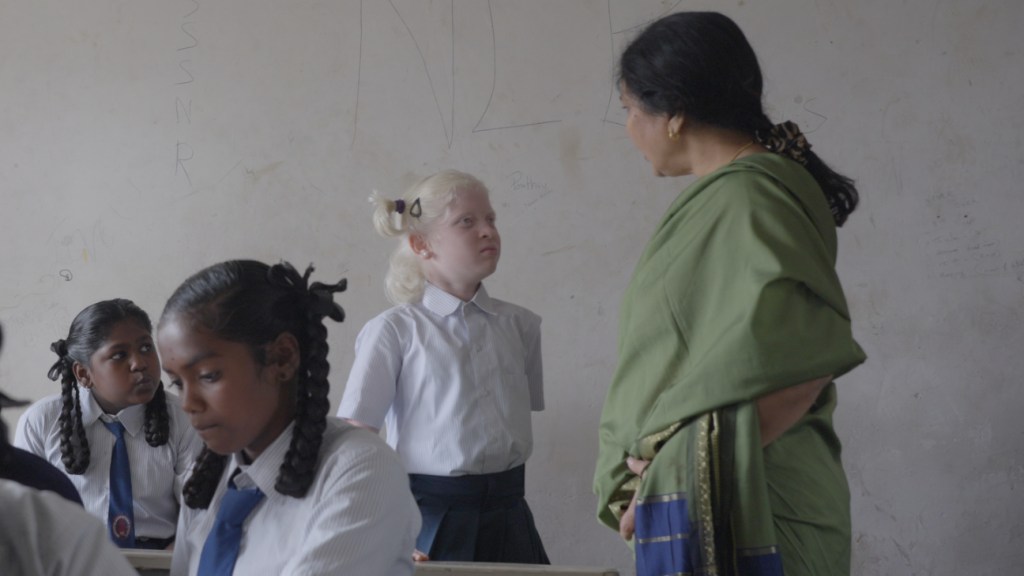The 461-film lineup for the 26th Shanghai International Film Festival spans the globe, but movies from India stood out this year, led by Payal Kapadia’s Cannes Grand Prix winner All We Imagine as Light, tickets for which were sold out in a matter of minutes.
Shanghai’s India Film Week sidebar features four recent releases from the subcontinent, and there’s been a great deal of anticipation for the world premieres of two new Independent Indian productions in the running for the 20th edition of SIFF’s Asian New Talents competition, a platform that has in recent years built an impressive box office strike rate with films it has selected.
“We are all very proud that Indian cinema is getting recognized this year, especially starting in Cannes,” says director Abhilash Sharma, who won best director in the Asian New Talent competition for his second feature In the Name of Fire.
Sharma’s In the Name of Fire is set in the rural east Indian state of Bihar and focuses on a struggling mother and child and how their religion impacts their existence. Satya Ranjan won Asian New Talent’s best actor prize for his role as a beleaguered father in the film. “India has a lot of states and a lot of languages, and we have so many remarkable films to share. Global support is something that is incredible for us,” Sharma said.
‘In the Name of Fire’
Shanghai International Film Festival
Manohara K.’s Bird of a Different Feather is also part of the Asian New Talents lineup, with actor Jayashri winning best actress. Manohara K. says it is a story that mixes his own childhood of abject poverty with that of the film’s writer Sonia S., whose own albinism has presented lifelong struggles for acceptance. It’s set in rural Karnataka, the same southwest India location featured in Chidananda S. Naik’s short Sunflowers Were the First Ones to Know, which won this year’s La Cinef section at Cannes, that category that encourages new talents and recognizing films from film schools worldwide.
Both Sharma and Manohara talk about the difficulties faced in finding distribution and how festivals such as SIFF play an important role in helping independent filmmakers gain international attention and, hopefully, distribution.
“Being recognized on a larger stage gives us hope,” says Sharma. “Sometimes we struggle with funding support, and these festival draw attention to our work and open a window for us.”
The plenty of reasons for the two directors to dream big. Last year’s Asian New Talents line-up produced two box office hits in China, with the Hong Kong-produced dramas In Broad Daylight and Time Still Turns the Pages getting wide release in China following SIFF
All the attention on India in Shanghai has raised talk once again about the long-touted possibilities of India-China co-productions, a box office dream team considering that combined the two film markets account for an audience of around 2.8 billion people, or over one third of the planet’s population. There’s been much noise generated in the past about and a film co-production treaty was launched in 2014. But only a few projects have ever been fully realized, among them the Jackie Chan-starrer Kung Fu Yoga (2017).
Shanghai-based Prasad Shetty, producer and distributor and a partner at Strategic Alliance, which promotes Indian films in China, was part of the team that helped bring the Aamir Khan-starring wrestling-centered Dangal to China back in 2017. He watched on as that film collected more than $200 million at China’s box office. This year, Shetty has been involved in bringing to Shanghai the Kiran Rao-directed marriage mix-up comedy drama Lost Ladies, which is screening as part of India Film Week, and from his vantage point on the ground in China he sees opportunity – with a caveat.
“You can’t make it transactional in China. It doesn’t work,” says Shetty, who suggests filmmakers think less about the box office and more about the story. “Dangal resonated because at its heart it is a story about a father and a daughter. So it doesn’t have to be and India or a China story, it has to be an emotional story, which connects with both these spaces.”
#Indian #Films #Continue #Shine #Shanghai #Film #Festival










